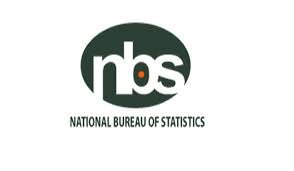A new report from the National Bureau of Statistics (NBS), based on the General Household Survey (GHS), reveals that the South-East zone has the highest proportion of household members with health problems in Nigeria.
According to the data, 33.3% of females and 27.1% of males in the region reported health challenges during 2023/24.
The South-South follows closely with 31.1% of females and 27.4% of males affected, while the South-West recorded 23.1% and 22.0%, respectively.
Among northern zones, the North-Central had the highest rates, with 22.9% of females and 21.2% of males, while the North-East recorded 22.7% for females and 20.1% for males.
The North-West reported the lowest proportions, with 19.6% of females and 19.9% of males affected.
Urban areas of Nigeria reported slightly higher figures (22.9% females and 21.2% males) compared to rural areas (22.7% females and 20.1% males). Overall, nationwide data showed that 24.3% of females and 22.2% of males experienced health problems during the period.
The findings highlight regional disparities in health issues across Nigeria, with the South-East leading the statistics.
“This data underscores the need for targeted healthcare interventions in regions with higher proportions of health problems,” a statement accompanying the report emphasized.



